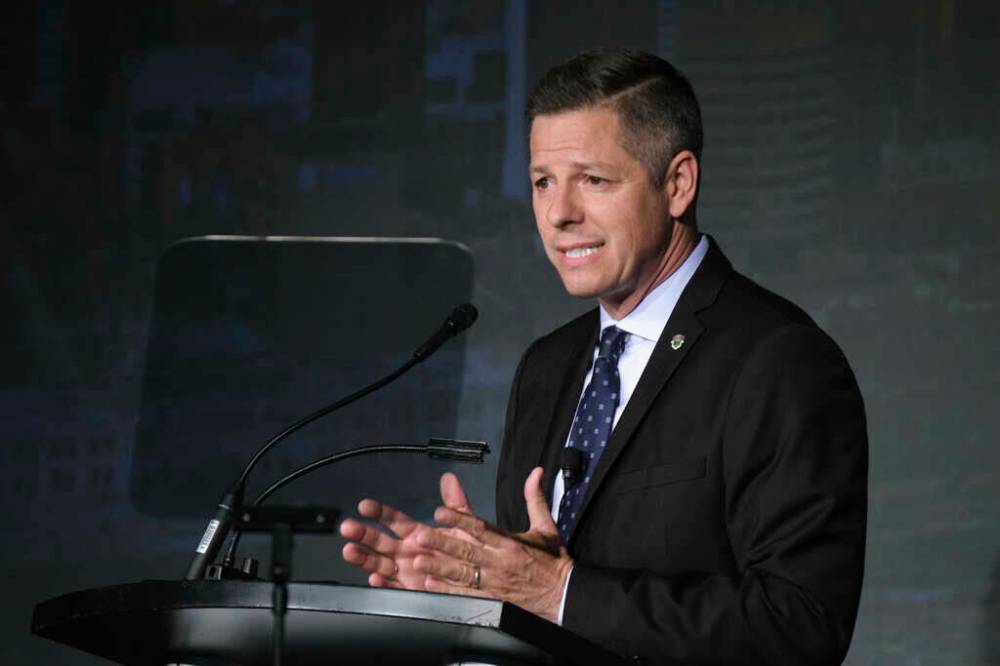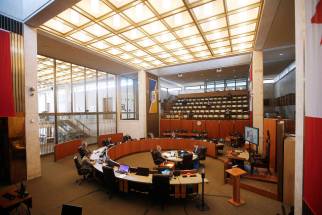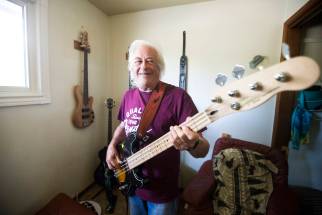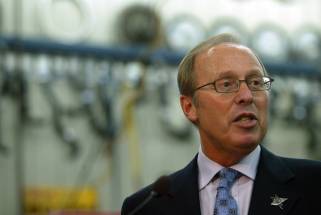Outsiders’ gripes aside, no need to alter rules for mayor’s cabinet
Read this article for free:
or
Already have an account? Log in here »
To continue reading, please subscribe:
Monthly Digital Subscription
$19 $0 for the first 4 weeks*
- Enjoy unlimited reading on winnipegfreepress.com
- Read the E-Edition, our digital replica newspaper
- Access News Break, our award-winning app
- Play interactive puzzles
*No charge for four weeks then billed as $19 plus GST every four weeks. Offer only available to new and qualified returning subscribers. Cancel any time.
Read unlimited articles for free today:
or
Already have an account? Log in here »
Hey there, time traveller!
This article was published 11/08/2022 (866 days ago), so information in it may no longer be current.
A mayoral election could be — perhaps should be — an opportunity to make structural changes in the way council and city hall works. Lamentably, few candidates take advantage of that opportunity.
Not that the issues and pledges raised in this campaign are insufficient to inspire interest; in fact, this campaign has produced more reasonable-to-good ideas than other mayoral races have. It’s just that ideas about how to make council work better seem to be few and far between.
And of the ideas that do come forward, most skew to the naive and ineffective end of the impact spectrum. Like the endless fascination with changing Executive Policy Committee.
EPC is correctly described as the mayor’s cabinet, an executive-level gathering of councillors who work closely with the mayor to implement ideas and manage issues. Currently, that includes six councillors serving as chairs of civic committees, the deputy mayor and the acting deputy mayor.
EPC is correctly described as the mayor’s cabinet, an executive-level gathering of councillors who work closely with the mayor to implement ideas and manage issues.
Nothing gets done at city hall without it going to a vote of the entire council. But EPC can, and often does, influence the outcomes.
That has driven some councillors absolutely mad. Now, most of the councillors who assail EPC are, unsurprisingly, not part of it. Over the years, these squeaky-wheel councillors have decried the power they believe rests in EPC, power that they believe comes at their expense. Councillors such as mayoral hopeful Kevin Klein, among others, claim the current model fosters division and dissent among councillors.
“Can you identify one thing positive that only happened because of EPC?” Klein asked in one of his spicy campaign dispatches. “If the system benefited all people, you would be able to list at least three, right?”
Klein asked an interesting but, ultimately, pointless question. Technically, anything good that happens at city hall has EPC fingerprints on it. Although Klein has proven his value as a watchdog for transparency and accountability, his reference to “only happened because of EPC” is too vague to deserve an answer.
Klein has not yet released a formal pledge to reform EPC, but others have.
MIKAELA MACKENZIE / WINNIPEG FREE PRESS FILES Robert-Falcon Ouellette has promised that all councillors will get a say on who sits on EPC.
Robert-Falcon Ouellette has promised that all councillors will get a say on who sits on EPC, reviving an old but unrealized proposal that previous mayors have initially supported but ultimately rejected. “It would ensure that the mayor doesn’t control all of council,” Ouellette said.
He’s not alone. Coun. Scott Gillingham, another mayoral hopeful, has promised to trim the size of EPC while also creating more opportunities for non-EPC councillors to get briefed on priority civic files.
Why is EPC so unpopular among those who don’t serve on it?
Many councillors have argued that the current format allows the mayor to create an unfair majority able to drive decisions at council.
Before he left office, former Mayor Sam Katz promised to allow council to elect three of the six EPC members. In the 2014 election, in which Katz was not a candidate, soon-to-be-former Mayor Brian Bowman promised to allow council to elect all six members, while also pledging to cut the top-up pay they get.
MIKE DEAL / FREE PRESS FILES Mayor Brian Bowman discovered that under the City of Winnipeg Act, the mayor is legally obligated to appoint members of EPC.
Katz never stuck around to see his plan in action. And, in the end, Bowman did not follow through on his pledge after discovering that under the City of Winnipeg Act, the mayor is legally obligated to appoint members of EPC.
In some ways, it’s too bad Bowman’s idea didn’t progress a bit further. We need to have more in-depth conversation about whether giving council the authority to elect EPC members is a good thing.
For those of us who have covered city hall, the idea of a second election within a general civic election is a rather horrifying prospect. Imagine all of the backroom deal-making and coalitions. It wouldn’t be long until a pseudo-party system erupted in council, and there is no evidence to suggest that would be a positive development.
But there is a bigger issue here that councillors do not want to acknowledge.
No single politician in Manitoba at any level of government receives more voter support than Winnipeg’s mayor.
If EPC has value, it is precisely because it is a mechanism for mayors to pursue their agendas. No single politician in Manitoba at any level of government receives more voter support than Winnipeg’s mayor. A provincial party leader may get to be premier by winning the leadership with a few thousand votes, and a few thousand more to win their seats; the mayor of Manitoba’s biggest city needs 100,000 votes to be competitive.
With that kind of mandate, voters should expect the mayor to drive the city hall agenda. In fact, whether or not you agree with that agenda, it is the mayor’s job to strike the deals and build the coalitions needed to make things happen.
At the end of a term, councillors are judged for individual measures they may have promoted and the quality of their constituency work; mayors are judged by what they accomplished on the floor of city council.
Abandoning the current system for selecting EPC members may make for solid, populist banter on the campaign trail. But it won’t make council work better.
dan.lett@winnipegfreepress.com

Dan Lett
Columnist
Born and raised in and around Toronto, Dan Lett came to Winnipeg in 1986, less than a year out of journalism school with a lifelong dream to be a newspaper reporter.
Our newsroom depends on a growing audience of readers to power our journalism. If you are not a paid reader, please consider becoming a subscriber.
Our newsroom depends on its audience of readers to power our journalism. Thank you for your support.











